2009 National Pollinator Week Celebration Page 3
go.ncsu.edu/readext?171374
en Español / em Português
El inglés es el idioma de control de esta página. En la medida en que haya algún conflicto entre la traducción al inglés y la traducción, el inglés prevalece.
Al hacer clic en el enlace de traducción se activa un servicio de traducción gratuito para convertir la página al español. Al igual que con cualquier traducción por Internet, la conversión no es sensible al contexto y puede que no traduzca el texto en su significado original. NC State Extension no garantiza la exactitud del texto traducido. Por favor, tenga en cuenta que algunas aplicaciones y/o servicios pueden no funcionar como se espera cuando se traducen.
Português
Inglês é o idioma de controle desta página. Na medida que haja algum conflito entre o texto original em Inglês e a tradução, o Inglês prevalece.
Ao clicar no link de tradução, um serviço gratuito de tradução será ativado para converter a página para o Português. Como em qualquer tradução pela internet, a conversão não é sensivel ao contexto e pode não ocorrer a tradução para o significado orginal. O serviço de Extensão da Carolina do Norte (NC State Extension) não garante a exatidão do texto traduzido. Por favor, observe que algumas funções ou serviços podem não funcionar como esperado após a tradução.
English
English is the controlling language of this page. To the extent there is any conflict between the English text and the translation, English controls.
Clicking on the translation link activates a free translation service to convert the page to Spanish. As with any Internet translation, the conversion is not context-sensitive and may not translate the text to its original meaning. NC State Extension does not guarantee the accuracy of the translated text. Please note that some applications and/or services may not function as expected when translated.
Collapse ▲2009 National Pollinator Week Celebration
June 27, 2009
Photos and text by Debbie Roos, Agricultural Extension Agent.
|
Page 3
|
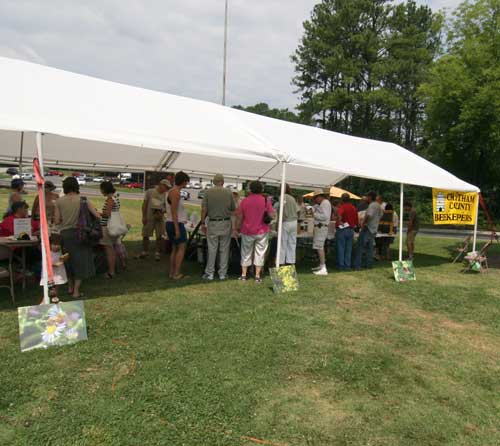
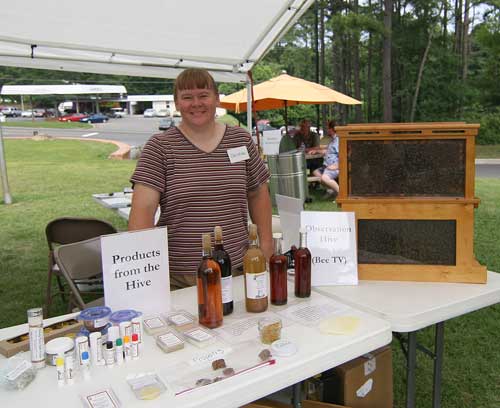
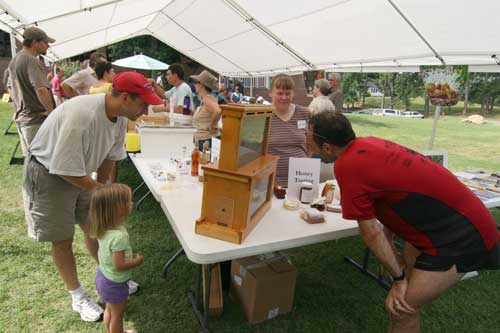
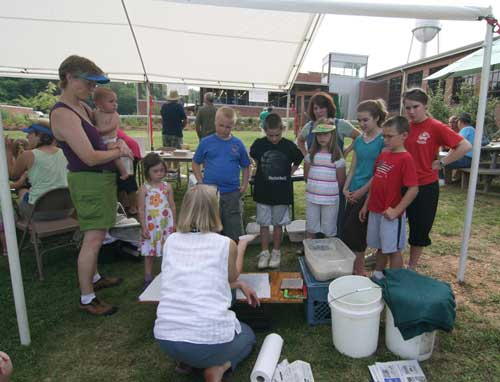

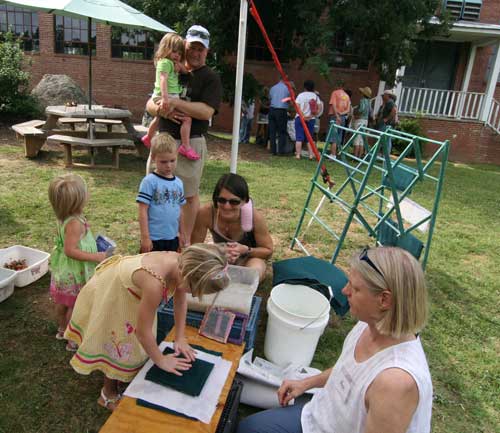
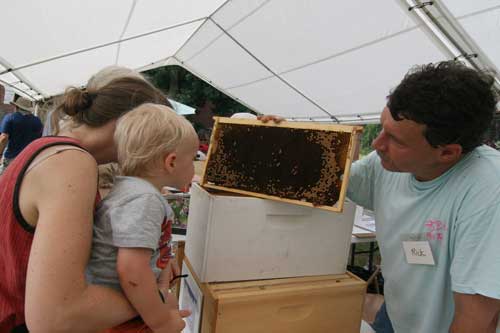
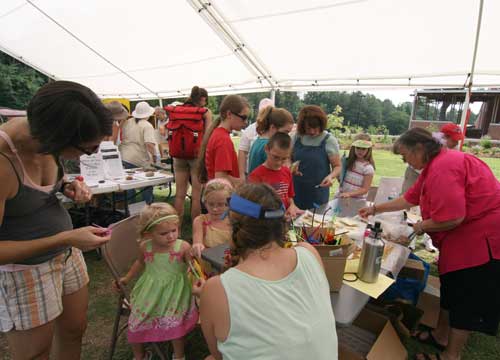
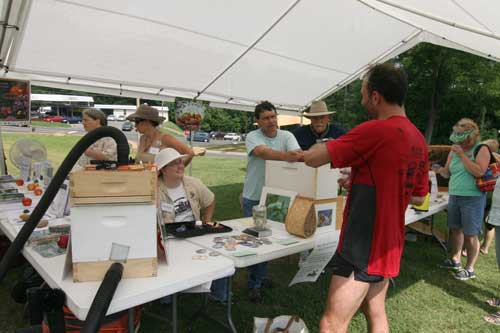
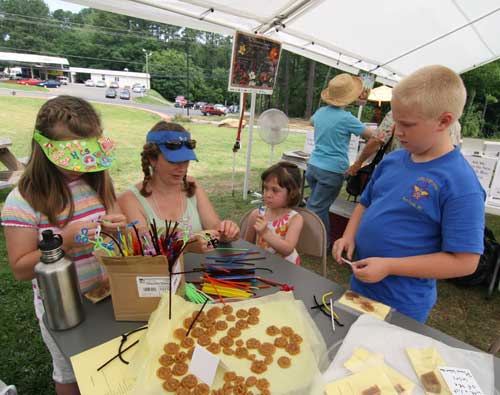
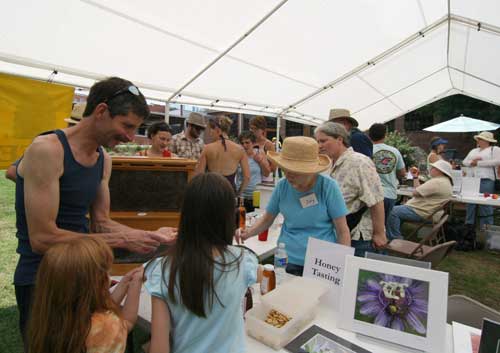
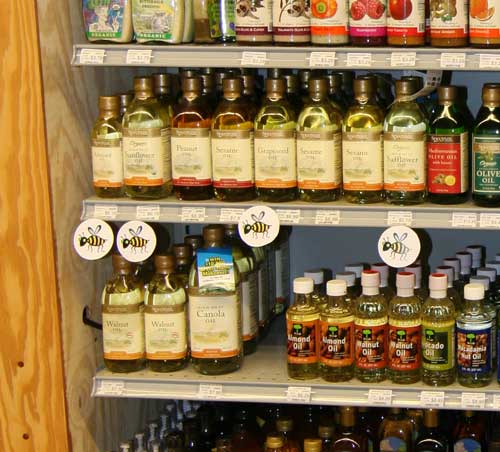
These bee signs were placed on items inside Chatham Marketplace that depend on bees and other pollinators. This display shows some of the oils. The signs were placed on everything from produce to cut flowers to chips, herbs, fruit juices, meat and dairy, etc. For more information, view the pollinator brochure.
Participants were also encouraged to enjoy a pollinator-friendly local lunch at Chatham Marketplace during the program (did you know that worldwide, approximately 1,000 plants grown for food, beverages, spices, fiber, and medicine require pollination by animals?).
See photos from our 2008 Pollinator Week celebration.
See photos from our 2007 Pollinator Week celebration.
|
Page 3
|


